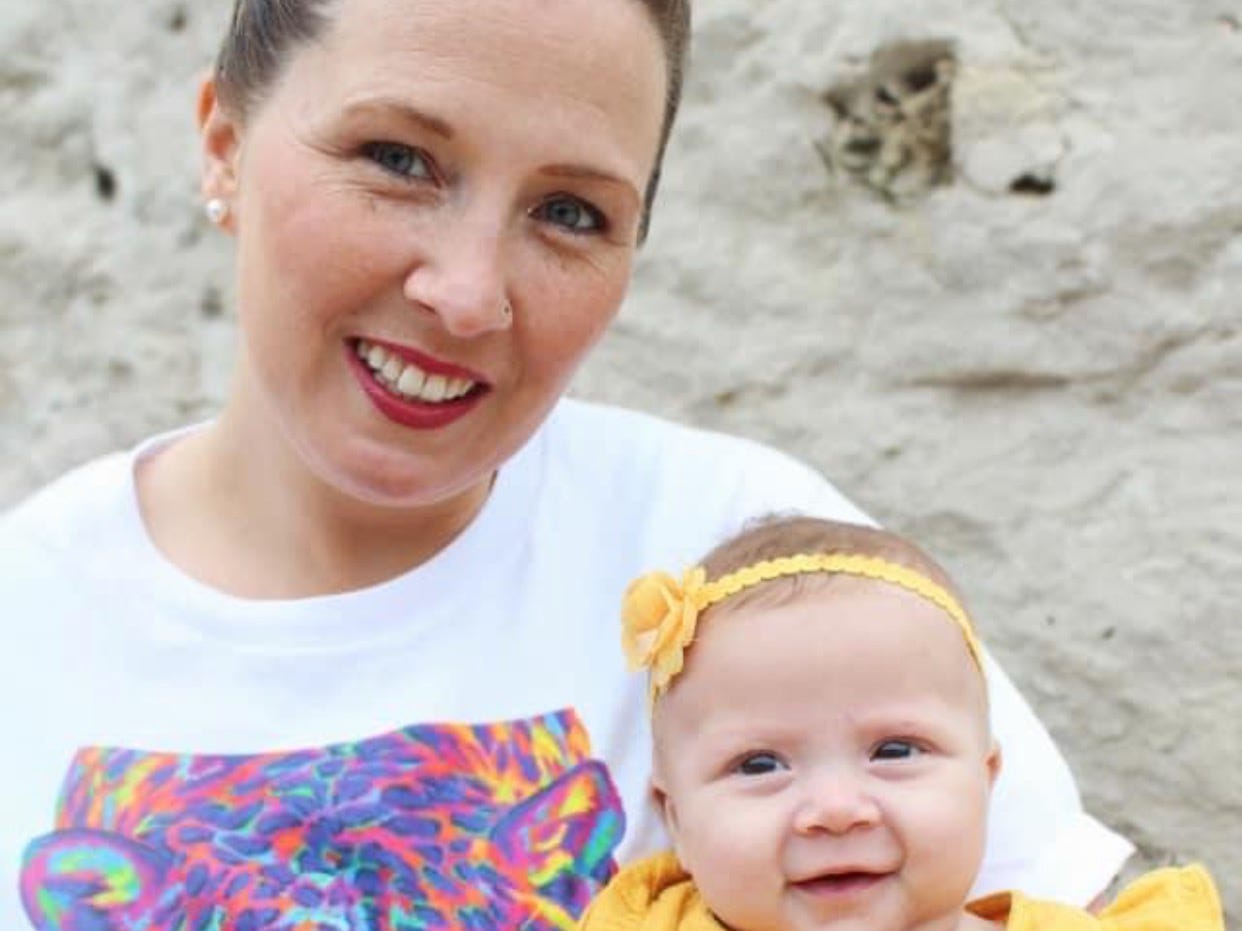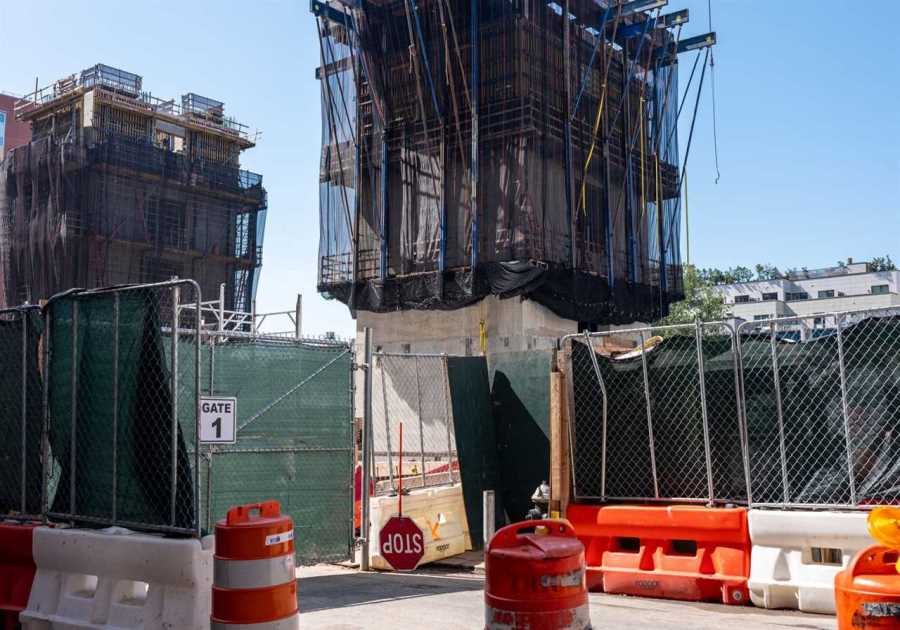Joe Raedle/Getty Images
- Congress enhanced unemployment benefits and gave parents monthly checks during the first two years of the pandemic.
- Both of those programs ended abruptly, and now workers have been without them for over a year.
- Experts and recipients say they were key lifelines, and should stick around.
For Brandi Johns, the $300 child tax credit she received from the federal government each month from July to December in 2021 wasn't just a piece of policy tucked into the American Rescue Plan. It meant that her son got to enjoy Christmas.
Johns, who lost her job at the onset of the pandemic and has only been able to hold part-time work due to an eye disease known as macular degeneration, said the monthly checks meant that she could put gas in the car, pay electric bills, or get soap at the laundromat. With those basic needs squared away, she could put the rest of her money towards things that might otherwise be cut in a tight budget.
"It ended up helping me get my boy his Christmas," Johns said.
For Maggie Lopez, a single mother in Texas, the checks meant some breathing room for her and her newborn.
"That kind of safety net coming in helped me with costs for my daughters, and just also catching up on some bills or paying off some of the debt that I hadn't been able to pay off before," Lopez said.
And for Lois Prew, a caretaker for a loved one in Massachusetts, enhanced unemployment checks throughout the pandemic meant "we were living like middle class people — and we felt like royalty, because it was so novel for us, and it was wonderful."

Lois Prew
But there's no more checks for parents; Congress didn't include another expansion in its latest spending bill. Federal enhanced unemployment is long gone, and some states have pared down their benefits.
All of those policies stemmed from a radical reimagining of just how much aid the US government can — and should — provide during a crisis. Things like expanding who was eligible for unemployment insurance or giving checks to parents went from far-off political wishlist items to an abrupt reality. But America's brief flirtation with a safety net that had far less holes came to an end over a year ago. Now, the measures sound once again like a political fairy tale — and that could mean much more hardship if and when another downturn comes.
The benefits helped prop up the economy, and meant fewer children went hungry
It's hard to emphasize how extraordinary the implementation of beefed-up unemployment checks was when the pandemic first hit. Michele Evermore, a senior fellow at left-leaning think tank The Century Foundation, knows firsthand. She worked in the Department of Labor under the Biden administration, helping administer the benefits that the Trump administration first expanded and Biden reinvigorated.
"I think it was exactly what was needed. It saved the economy, it saved lives. It put food on the table for people who otherwise would've had no way to do that," Evermore said.
The enhanced unemployment had a ripple effect, according to Evermore: People were able to stay home safely. They were also able to spend that newly stable income in their communities. And, with some workers receiving reliable, livable wages for the first time, it may have animated the current sentiment from workers to demand better.
Then, as the country inched towards reopening, the Biden administration's big stimulus package included another extraordinary measure: A beefed-up, fully refundable child tax credit (CTC), where the first half would be distributed in monthly checks to parents. Child hunger and poverty dropped.
"There's a lot of people — I'm sure not even just single moms, like families with two incomes — that struggle or have to take out credit card and so much debt or not see their kids," Lopez, a CTC recipient, said. "It makes a huge difference in not only us as adults, but our kids' lives when we get to be around our children more and actually participate in their lives and do things together as a family."

Maggie Lopez
But as quickly as they started, both measures came to abrupt ends. In the case of enhanced unemployment, some states decided to end their participation in federal programs early, leaving many workers in dire straits.
"As a consequence" of the child tax credit, "many Americans remained on the sidelines of the economy even as 'Help Wanted' signs were lining storefronts along Main Streets across the country," Rep. Jason Smith, a Republican from Missouri, said in a release on the credit's impact.
The animus behind ending benefits was to get people back to work. However, research showed an opposite effect: People cut off didn't return to work in higher rates, and ending benefits early actually ultimately cost states billions in consumer spending.
"It appears that people used their unemployment insurance benefits to survive, which was what they were supposed to do, and then they went back to work when they could," Evermore said.
After Congress failed to renew a reduced version of the child tax credit at the end of 2021, child poverty once again ticked up.
"This isn't supposed to be just helping as a cheap way out. It has genuinely helped those who need the help to get to a better place," Johns said.
Don't expect benefits to come back
Now, as the country careens toward another possible downturn, benefits probably won't return — as evidenced by the child tax credit's omission from Congress' latest big spending bill.
"Democrats' partisan program fueled 40-year high inflation and made it harder for businesses to rehire their workers," Rep. Kevin Brady, a Republican from Texas, said in a release. "Unfortunately, Democrats in Washington are pushing the very same failed policies that have created a cruel economy for working families."
As Insider reported back in July, the next recession will likely be induced by the Federal Reserve's interest rate hiking policy meant to bring down inflation. Pouring more money into the economy through benefits or checks might be a non-starter, as many believed this kind of spending was one of the major causes of inflation in the first place.
"We are absolutely not prepared for another recession," Amy Traub, a senior researcher and policy analyst on the social insurance team at the National Employment Law Project, told Insider. The Century Foundation has extensively chronicled how states aren't ready to distribute benefits, with many paying out too slowly and at far-reduced levels. There is some hope, with more money towards unemployment insurance in the new omnibus spending bill. But with a GOP-led House, alongside Democrats unwilling to extend or enhance benefits, failure to enact more widespread relief is once again a foregone conclusion.
In the early days of the pandemic, Evermore said that there were entire days when she panicked that if enhanced benefits came without permanent reforms — which they did — "we'll get to the end of the pandemic, and these benefits will all disappear — and people will be mad at unemployed people and be blaming them for things and be a lot less charitable."
Right now, "there's reluctance to introducing things legislatively, putting out ambitious proposals, because people say, well, there's not right this moment the political will," Evermore said. "Personally, I know that's not how movements win."
Read More
By: [email protected] (Juliana Kaplan)
Title: Congress created an actual safety net for Americans during the last crisis. Don't expect that to happen again.
Sourced From: www.businessinsider.com/how-will-government-help-during-recession-unemployment-checks-parents-biden-2022-12
Published Date: Sat, 24 Dec 2022 12:15:00 +0000
.png)





